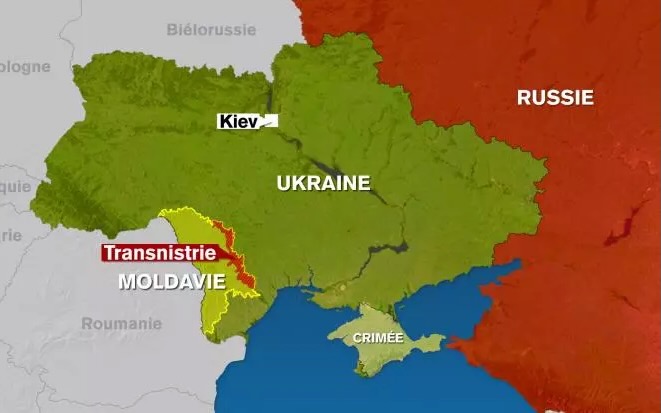
On 14 December 2023, the European Council, composed of Heads of State or Government of EU member states, has decided to begin formal accession talks with both Ukraine and Moldova.
• Ukraine is a country at war. Russia’s special military operation was launched in compliance with Security Council Resolution 2202 [1], in order to implement the Minsk Agreements, validated by the resolution itself, as well as to honor the declaration by Presidents Petro Poroshenko, François Hollande and Vladimir Putin, as well as Chancellor Angela Merkel, in their role as guarantors of the agreements. However, the EU equates this public security operation with an “aggression” in “clear violation of the United Nations Charter”.
In 2021, the European Court of Auditors issued a special report on corruption in Ukraine [2]. It states: “ ’State capture’ by blocks of powerful political and economic elites that are pyramidal in structure and entrenched throughout public institutions and the economy has been seen as a specific feature of Ukraine’s corruption”. The court then made seven recommendations. It was obviously impossible to implement them during the war, in particular recommendations 2 (support for civil society organizations and investigative journalism) and 3 (removing impediments to free and fair competition). However, instead of improving, the situation got worse. The Commission had thus concluded that the opening of an accession process was impracticable. Today, despite a sharp rise in corruption (for example, the weapons supplied to Ukraine ending up in the hands of Hamas), the Commission has revised its position.
• Moldova is a country at peace. However, on 2 September 1990, i.e. eleven months before its independence, the autonomous region of Transnistria had proclaimed its own independence from the USSR. The Soviet Union used this small region to house secret military research institutes. The population of Transnistria is Russian and boasts a very high level of scientific education; it is distinct from the Moldavian population, with which it doesn’t even share the language.
In 1992, relying on Romania, NATO attempted to overthrow the government of Transnistria and take over the Soviet research institutes on its territory. But, despite launching a major military operation, the alliance did not succeed [3].
For 23 years, Transnistria has developed a unique form of government, drawing on the communist model in the social field, while scrupulously protecting individual and public freedoms. In two reports presented on 5 September 2019 before the US House of Representatives [4], the Rand Corporation expounded a plan to weaken Russia. It was ultimately through the violation of the Minsk Agreements and by fomenting the war in Ukraine that this plan came to fruition [5]. It further foresees that the United States may push NATO and the EU into integrating Moldova, and then prod the latter to denounce the 21 July 1990 ceasefire [6], thereby opening a new front against Russia .
The announcement of the opening of negotiations with Moldova does not mention the existence of Transnistria (officially the Pridnestrovian Moldavian Republic) which the European Union considers as a Moldovan territory although it has never depended on Chișinău.
There is therefore no doubt that the simultaneous opening of the EU membership negotiations with Ukraine and Moldova is an act of war against Russia.
[1] UN Security Council Resolution 2202, 17 February 2015.
[2] Reducing grand corruption in Ukraine], European Court of Auditors, 2021.
[3] "En 1992, les États-Unis tentèrent d’écraser militairement la Transnistrie", par Thierry Meyssan, Réseau Voltaire, 17 juillet 2007.
[4] Overextending and Unbalancing Russia, James Dobbins, Raphael S. Cohen, Nathan Chandler, Bryan Frederick, Edward Geist, Paul DeLuca, Forrest E. Morgan, Howard J. Shatz, Brent Williams, Rand Corporation, April 2019. See the details of the plan in Extending Russia : Competing from Advantageous Ground, Raphael S. Cohen, Nathan Chandler, Bryan Frederick, Edward Geist, Paul DeLuca, Forrest E. Morgan, Howard J. Shatz & Brent Williams, Rand Corporation, May 25, 2019. These two reports were presented before the US House of Representatives on Septembre 5, 2019.
[5] "Ukraine: It Was All Written in the Rand Corp Plan”, by Manlio Dinucci, Global Research, Voltaire Network, 8 March 2022.





























Stay In Touch
Follow us on social networks
Subscribe to weekly newsletter